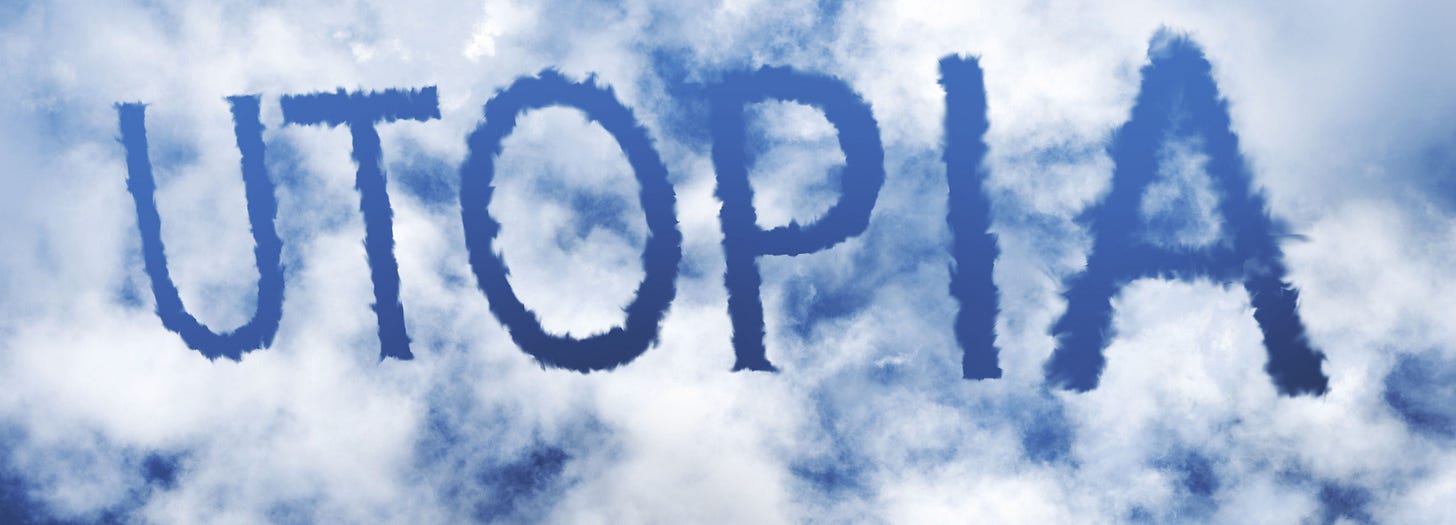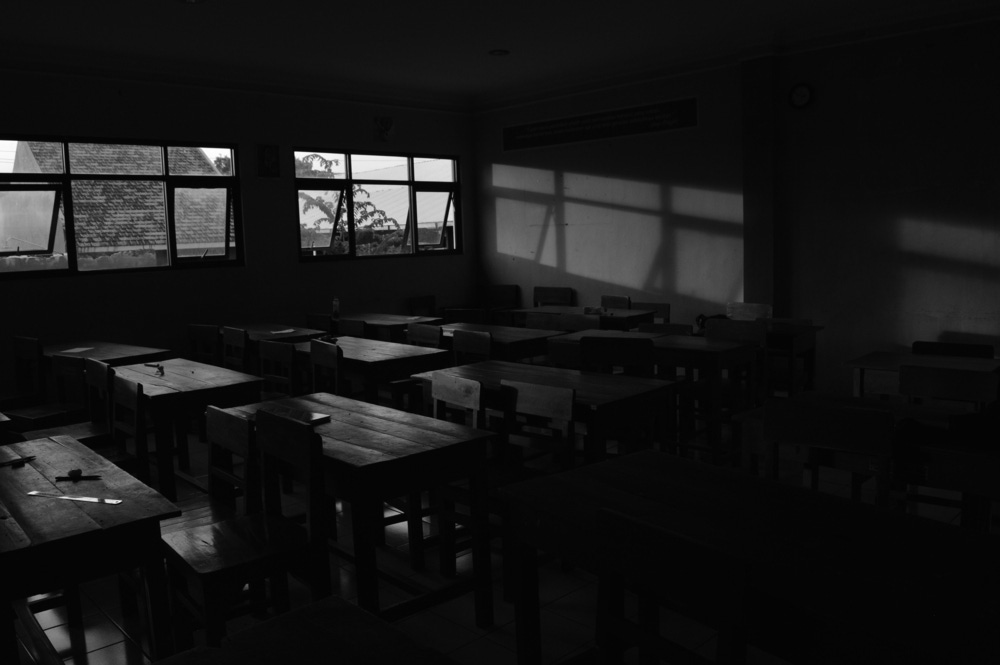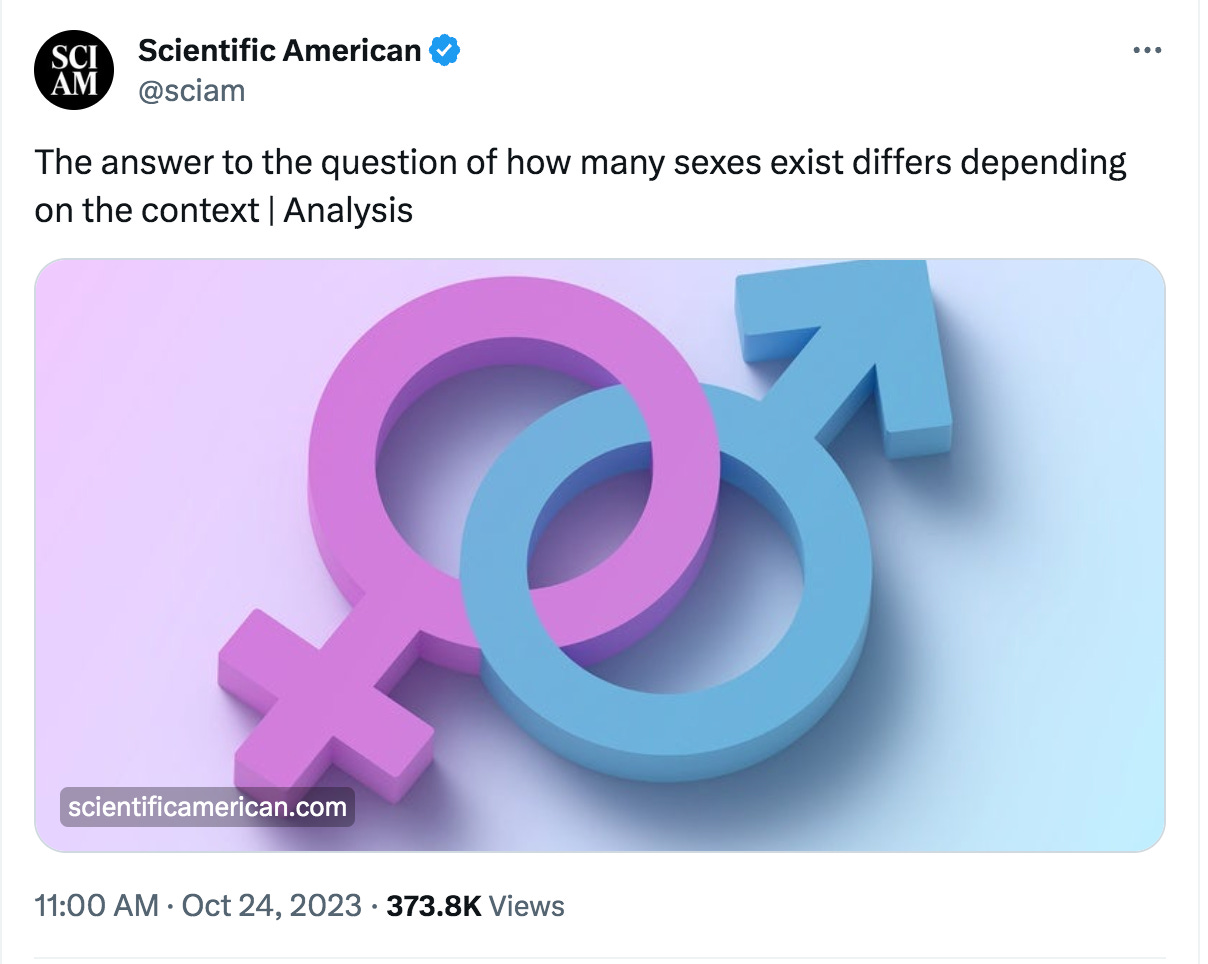E-Pluribus | October 25, 2023
Free speech for all, even when it's hard; liberalism without utopianism; and how grade inflation deflates students.
A round-up of the latest and best musings on the rise of illiberalism in the public discourse:
Matt Yglesias: Israel, Palestine, and the need for principled free speech
Crises challenge principles, and Matt Yglesias writing at his popular Substack Slow Boring says the discourse surrounding the current Israel-Gaza conflict is no different. When the stakes are high, the impulse to beat down the other side becomes stronger. Yglesias urges all sides to recognize the pitfalls of backsliding on free expression during such a time, because eventually the tables will turn and the silencer will become the silenced.
It’s important to note here that we are almost never, in any of these free speech arguments, discussing the constitutional concept of free speech as absolute content-neutrality.
Nobody has a right to be a featured speaker at the 92nd Street Y (I’ve never been one), and if they want to cancel a Viet Thanh Nguyen event over something he said about Israel, that is their right. Indeed, freedom of speech means that institutions like the 92nd Street Y have the freedom to determine who they do and do not invite, and if that means defining themselves as a place where someone who signs a letter condemning Israel’s “indiscriminate violence” in Gaza isn’t allowed to speak, they can do so.
By the same token, if a particular college or university wants to avowedly self-identity itself as a leftist institution, there’s nothing procedurally wrong with that. Indeed, in some respects, I think it would be healthier if different American universities were just more different from each other.
But free speech is not only a question of constitutional law, it’s a question of norms and standards of conduct and good sense.
Obviously some people are, in fact, saying hateful and bigoted antisemitic things. Nguyen pretty clearly was not. He was articulating a standard left-wing foreign policy view that’s consistent with his overall leftist political commitments. Muddying the waters between these two things is, I think, an objectionable tactic, whether pursued by the left or the right. The reason it works, though, is that the hatred and bigotry are real. It’s not the case that everyone who is vocally critical of Israel has a problem with Jewish people, but for obvious reasons, anti-Israel politics is kind of a flytrap for antisemites. In much the same way, it’s not racist to worry about street crime or to think that proactive policing is useful, but it’s definitely true that racists are attracted to this set of issues — often in ways that are unproductive in actually making the streets safer.
But you can’t, like, x-ray a person’s brain and know the precise motives for their words or deeds. You can try to foster a culture that values debate and the exchange of ideas, or you can try to foster a culture that assumes the worst and tries to shut down or bully people. The former is a better path.
Read it all.
Alan S. Rome: Liberalism Against Utopianism
At Quillette, Alan S. Rome has written a less than glowing review of Yale professor Samuel Moyn’s new book, Liberalism Against Itself: Cold War Intellectuals and the Making of Our Times. Rather than providing a clear contrast between Cold War liberals and today’s progressives, Rome finds that Moyn’s analysis “generally boil[s] down to the fact that Cold War liberals are too conservative for his liking.”
Moyn’s new book Liberalism Against Itself deepens this critique by training its sights on “Cold War liberalism,” an often pejorative term for the particular brand of liberalism that came to dominate US political discourse in the 1940s and ’50s at the height of tensions between the West and the Communist Bloc. “Cold War liberalism,” the opening line of Moyn’s book declares, “was a catastrophe—for liberalism.” By overreacting to the Soviet threat, Moyn believes that liberals adopted what philosopher Judith Shklar called a “liberalism of fear.” Obsessed with the dangers of tyranny, they abandoned their previously progressive stances for an impoverished and defensive crouch of anti-totalitarianism and anti-communism.
In this way, Cold War liberals became preoccupied with freedom at the expense of a more positive commitment to the mastery of human nature and society. Growing up “in the presence of the most egalitarian and emancipatory state liberals ever built,” Cold War liberals failed to defend a progressive welfare policy. And by discrediting alternatives, they “created the conditions not for universal freedom and equality but for the waves of enemies such liberals keep finding at the gates—or already inside them,” especially neoconservatism and neoliberalism. Liberalism, we are told, must therefore be revitalised by recovering the richer aspects of its tradition that predate the Cold War. As Moyn remarked in an interview last year, “[M]y main emphasis as a historian of political thought is really to document episodes of foreclosure, and to use history as a tool of opening up the space of intellectual and political possibilities.”
[. . .]
The most fundamental limitation with Moyn’s project, however, is a limitation of intellectual history itself. The discipline is concerned with contextualising thinkers and tracing their influences and conditions, but in so doing, it has an unfortunate tendency to relegate them to the past. If treated as mere products of their time, there is no need to engage with their arguments, to assess the truth of their philosophical, historical, or social claims, or to learn anything from them. Short of true dialogue, Moyn’s criticisms generally boil down to the fact that Cold War liberals are too conservative for his liking. And a true dialogue with these figures is not possible because their conservatism represents a rejection of Moyn’s fundamental philosophical assumptions.
This is especially true of his understanding of ideas, which he believes are free-floating, all-powerful entities that can be imposed upon the world without any resistance from underlying realities. He argues, for instance, that liberals “have paid a high price” for their supposed scepticism about historical progress, for “if history is not progress, it is meaningless.” That statement—rather reminiscent of Merleau-Ponty’s claim that “if Marxism is false, there is no reason in history”—is disputable in itself. But even if it were true, wishing does not make something so. Historical progress either exists or it does not; its political implications are a secondary matter. Nor does Moyn’s lament about the conservative consequences of Christian or Freudian doctrines amount to a rebuttal of their claims. But because Moyn wishes there were no limitations to human striving, he dismisses the existence of any such limitations.
Moyn, then, is not interested in politics as such—the messy art of the possible and the compromise. He is only interested in his own brand of utopianism. He deals in high-level abstractions, and displays no interest in any contradictions between his desires and reality. He has claimed, for example, that he is a left Hegelian who believes in “a kind of emancipatory statism through the institutionalisation of a free community of equals who are creative agents … which is not at all bureaucratic or technocratic.” Setting aside the supposed necessity of an interventionist state for the realisation of higher truths and values, it is not clear how one can have such a state which is “not at all bureaucratic or technocratic.”
Read it all here.
Doug Lemov: Your Neighborhood School Is a National Security Risk
Wanting everyone to “succeed” sounds like a noble goal, but how we go about that as a society will have an enormous impact down the road. At Education Next, former teacher and school principal Doug Lemov warns that the trend towards grade inflation amounts to lowering the bar for everyone, and is helping to create a generation of students that will ultimately question the value of hard work.
Recently, I spoke with a student I’ll call Ella. She’s a biochemistry major at a college in the Northeast now, but she went to high school in a town outside a medium-sized coastal city, the sort of town that families move to for the public schools.
Ella didn’t squander the opportunity. She took seven AP classes; she took AP Calculus BC as a junior and a college-level class in linear algebra her senior year. She racked up a 96 average. Several teachers wrote her notes telling her they appreciated having her in class and encouraging her to continue in the STEM field.
So you might be surprised to find that, thinking back, Ella considers a lot of what she did a mistake. “I was so stupid. Every party I skipped, I should have gone,” she reflected. The kids who went to the parties didn’t do as well on tests and papers as she did but, she observed, “nobody knows that but me.”
She was motivated and liked learning, but she was also competitive. She assumed that she would work a little harder, delay some gratification, and her extra effort and accomplishment would be valued and acknowledged—rewarded, even. But everywhere she turned, the signal—this is a student who has done more—was diluted. She resented it.
Grade inflation was one way she felt her hard work had been undervalued at her high school. You got a 95 or a 96 if you did exceptional work, but pretty much everyone who did a credible job got a 93. A 90 definitely put you in the bottom half.
And the grade inflation was also grade conflation. As high grades get easier and easier to achieve, the highest grades can only go up so far. The difference between excellent and decent is compressed. The signal that 96 is different from 94 becomes hard to see. That distinction could still reveal meaningful differences, at least hypothetically, if it were calculated consistently and if people paid careful attention to it. A ranking of students would help, for example, but Ella’s high school didn’t do that, because the practice was seen as too competitive. Being on the honor roll didn’t help, because the “honor roll” included more than half the students in each grade. Taking harder classes wasn’t factored into grade-point-average calculations, though at least her school hadn’t eliminated honors classes in the name of equity as other schools in her city had. And the degree of grade inflation within the school was wildly inconsistent, Ella said. Teachers in some classes—especially the easier ones—gave high grades lavishly. “It was pass/fail, basically. If you did the homework, you got a 95. I think the teachers thought that would make them popular.”
[. . .]
Maybe your reaction to this is: “So what? There are lots of smart kids. Not everyone gets in. Get over it. Ella’s at a perfectly good school.” Or maybe you’re thinking: “There’s probably more to the story; how does she know what the girl going to Duke did? Or dealt with?” Maybe you’re even a little bit scornful of Ella’s ambition and competitiveness. Shouldn’t her motivation to go the extra mile be intrinsic? Maybe you assume that her parents were pushing her. The lesson should be for her to chill out.
But an interesting question to ask at the societal level is: What would we want a disappointed striver like Ella to say? I should have worked harder would be a good response. I will work harder, learn more, grab the next opportunity. But Ella’s response—I should have partied more; I’ve learned my lesson about going the extra mile—is the opposite. She sees a larger ecosystem in which the desire for distinction, knowledge, and a drive to excel are mostly irrelevant.
Everybody wins, under the system that Ella grew up in—a system that guides and shapes the mindset of most American students—except a small number of kids who lose out in their quest to distinguish themselves. It’s easy to dismiss those kids, and their often-foreign-born parents, as hypercompetitive and out of step with the times. Why do they need to compare themselves to anyone else? They got good grades. So what if everyone else did, too?
But think about Ella as a societal asset—someone who could, if she works hard and pushes herself, contribute one day to groundbreaking research. There’s a second group that loses in a system that dilutes signals of excellence. That group is the society that, whether it realizes it or not, is counting on its Ellas to preserve its prosperity and national security. Because while our system was doing everything it could to weaken and dilute competition and meritocracy, the wider world was changing. Quickly.
Read the whole thing.
Around Twitter (X)
Colin Wright has had it with pseudoscience journals:
Megan McArdle comments on the merger of academics and politics, as illustrated by University of California, Berkeley, students being offered extra credit for pro-Palestinian activism:
And finally, how difficult is it to condemn Hamas? Well, if you’re the student government association at Brandeis University…










